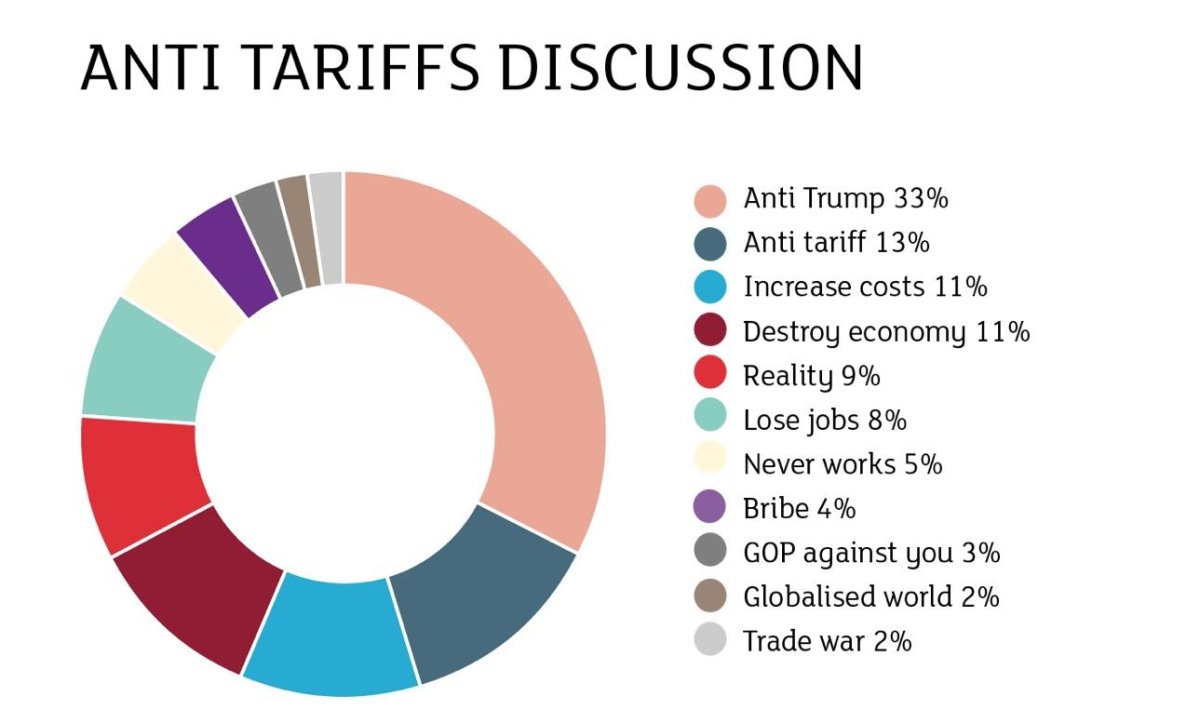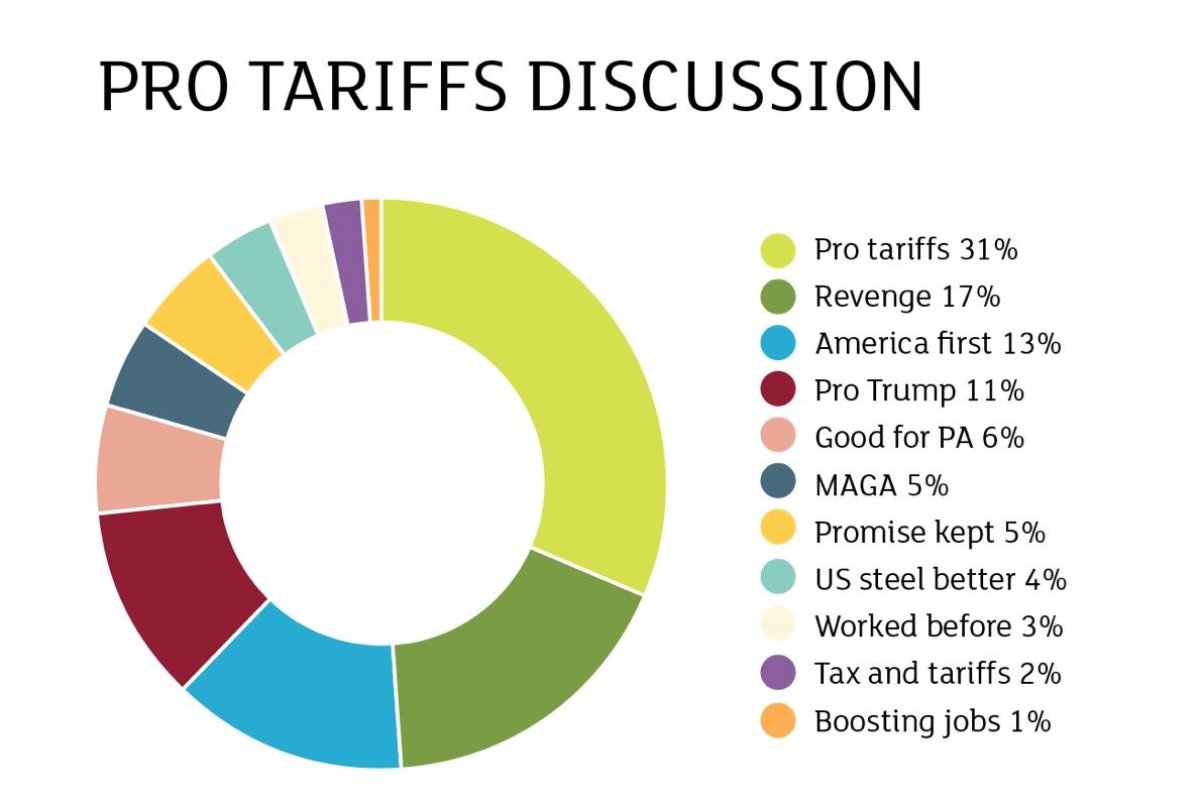No one can accuse Donald Trump of campaigning in poetry and governing in prose. Much has been delivered in equally confusing doggerel, and many of us assumed he was making it up as he went along. Yet the bigger surprise seems to be that amid the incoherence there's a long memory. A nagging sense of a man who, if he made it up on the spot, watched the footage back, remembered what he said and is determined to deliver on his campaign promises.
Surprisingly, the issue is becoming not that he said controversial things—but that he is beginning to deliver on them.
The latest in that lineup was Trump's formal adoption of new tariffs on steel and aluminum imports, while allowing "real friends," as yet unnamed U.S. allies, to apply for exemptions. It's a new, high-stakes definition of mate's rates.
Of course, the friends Trump was really concerned about were inside U.S. borders, not outside. With midterm elections toward the end of the year and a presidency buffeted by Russian controversy and Robert Mueller's shadow looming ever larger over him, Trump has chosen to play his America First card, and to play it strongly in the Rust Belt. To keep his promise to America's industrial heartland to bring back jobs in its traditional industries.
The problem is that those in the industrial heartland don't seem to think it's the right thing to do…There's ingratitude for you.
The social media analysis company Impact Social analyzed online and social media discussions about Trump's tariffs in the state of Pennsylvania in order to dissect the online (and freely offered) opinions. They looked at posts on social and open news platforms, geo-located to Pennsylvania, with retweets and repetition removed (in the period February 28 to March 7, just before the promise became reality).
This, then, is a key state in the tariff debate. These are the very people Trump is trying to impress, the ones whose jobs he is trying to save.
But it isn't working.
While there's a good deal of neutrality in the debate (just over 54 percent merely noting the news), a third actively dislike the measures, and only 13 percent are in favor of them. A key, signature policy from Trump in a state which should benefit most. And only 13 percent are impressed. That's a pretty limp approval level for a measure which threatens significant trouble with America's trading partners. An obvious bribe to the electorate has been received with distaste and distrust.

The nearly one-third of voters who actively disliked the policy included a significant number who indicated in their posts that they backed him for president and had buyers' regret. This measure merely adds to that sense of ennui. A measure designed to buttress his support has done no such thing.
There's a real sense of exasperation at the steps: that leading the U.S. into a trade war won't end well; that the end of free trade is the U.S. turning its back on the world. Many, especially those who work in manufacturing, remain convinced that tariffs will increase costs and lead to job losses. Far from saving the industrial sector, they say, Trump is showing economic illiteracy that will only add to the cost of significant consumer goods: cars, stoves and fridges, the gleaming mainstays of the 1950s American dream.
Many went farther back with their historical references—convinced that tariffs will lead to a recession or even depression, citing similar attempts to safeguard the U.S. economy in the 1930s—and with a similar outcome. Such retrograde steps, many argue, are especially dull-witted if they are attempts to save a steel industry that may be beyond rescue, threatened as it is by automation in foreign companies. Saving the industry could save the robots, not the workers.
Add to that the sense of anger at the perceived hypocrisy of a man who previously used imported steel to build his own business empire. Carl Icahn's "well-timed" exit from steel stocks just before the announcements contributes to the acrid aroma around it all.

The limited joy for Trump in these conversations—that 13 percent—is centered on the idea of a promise kept, irrespective of whether it was a good idea or not. It's an America First conversation—buying homegrown products will save jobs and industry, as it did for the first 200 years of U.S. history (neatly ignoring the state of China's industries at the time). And, even better, it teaches those foreigners a lesson. Besides, America produces "better steel." Thoughts prompted by emotion rather than rationality.
Such subjective logic generally supports Trump's flag-waving approach to national economics, but here, in the very place he was hoping to win over, Trump's Big Idea is found wanting. Provoking an unwanted trade war in a futile attempt to save jobs in a dying industry may not be the obvious approach, but more importantly, it's looking unpopular and has little expectation of success.
If Trump was hoping it would put energy back in his wounded presidency, he'll find that maybe some promises made on the hoof just aren't worth keeping.
Jimmy Leach is a digital consultant working on platforms and communications for governments, corporations and start-ups.
Uncommon Knowledge
Newsweek is committed to challenging conventional wisdom and finding connections in the search for common ground.
Newsweek is committed to challenging conventional wisdom and finding connections in the search for common ground.
About the writer
To read how Newsweek uses AI as a newsroom tool, Click here.








